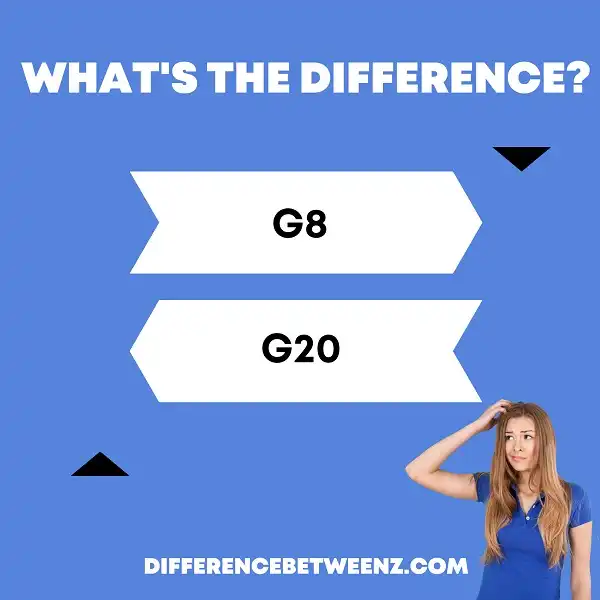The G8 and G20 are two groups of the world’s wealthiest countries. They have different members, and meet for different reasons. The G8 meets to discuss issues affecting just its eight members, while the G20 discusses global economic issues. The purpose of this blog post is to outline the differences between these two groups.
What is G8?
G8 is short for “Group of Eight,” a moniker that refers to the world’s eight wealthiest nations. The G8 nations are Canada, France, Germany, Italy, Japan, Russia, the United Kingdom, and the United States. They are collectively responsible for approximately 64% of the world’s GDP and more than half of its total population. Every year, the G8 leaders meet to discuss global issues such as economic growth, terrorism, climate change, and disease control. G8 summits are often criticized for being elitist and exclusionary; however, they continue to be a significant platform for addressing some of the world’s most pressing problems.
What is G20?
G20 is short for “Group of 20.” It is an international forum for central bank governors and finance ministers from 19 countries, plus the European Union. The G20’s stated purpose is to promote international financial stability. In practice, it also serves as a platform for discussion on global economic issues. G20 meetings are typically chaired by the finance minister of the country that holds the rotating presidency. The next G20 summit is scheduled to be held in Argentina in 2018.
Differences between G8 and G20
The G8 and G20 are both international forums for coordinating economic policies. The G8 includes the eight largest economies in the world, while the G20 includes a broader range of countries. The G20 was created in 1999 in response to the Asian financial crisis, and it held its first summit in 2008 in the midst of the global financial crisis. The G8 has been criticized for being too exclusive, and for not being representative of the global economy.
The G20 is seen as more inclusive and diverse, and it is generally considered to be more effective than the G8. One reason for this is that the G20 includes major emerging economies such as China and India, which were not represented in the G8. Another reason is that the G20 places more emphasis on cooperation and coordination, while the G8 has been criticized for being too focused on promoting individual country interests.
Conclusion
The G8 and G20 coalitions of nations are two different types of groupings with unique advantages and disadvantages. The G8, while smaller in number, is more nimble and able to make decisions quickly. They also have a stronger focus on economic issues. The G20, while larger, can bring more voices to the table but decision-making is slower due to the variety of opinions represented. Additionally, the G20 has a broader mandate that includes social and developmental issues as well as economic ones. As you can see, there are pros and cons to both groupings depending on what your specific needs may be.


